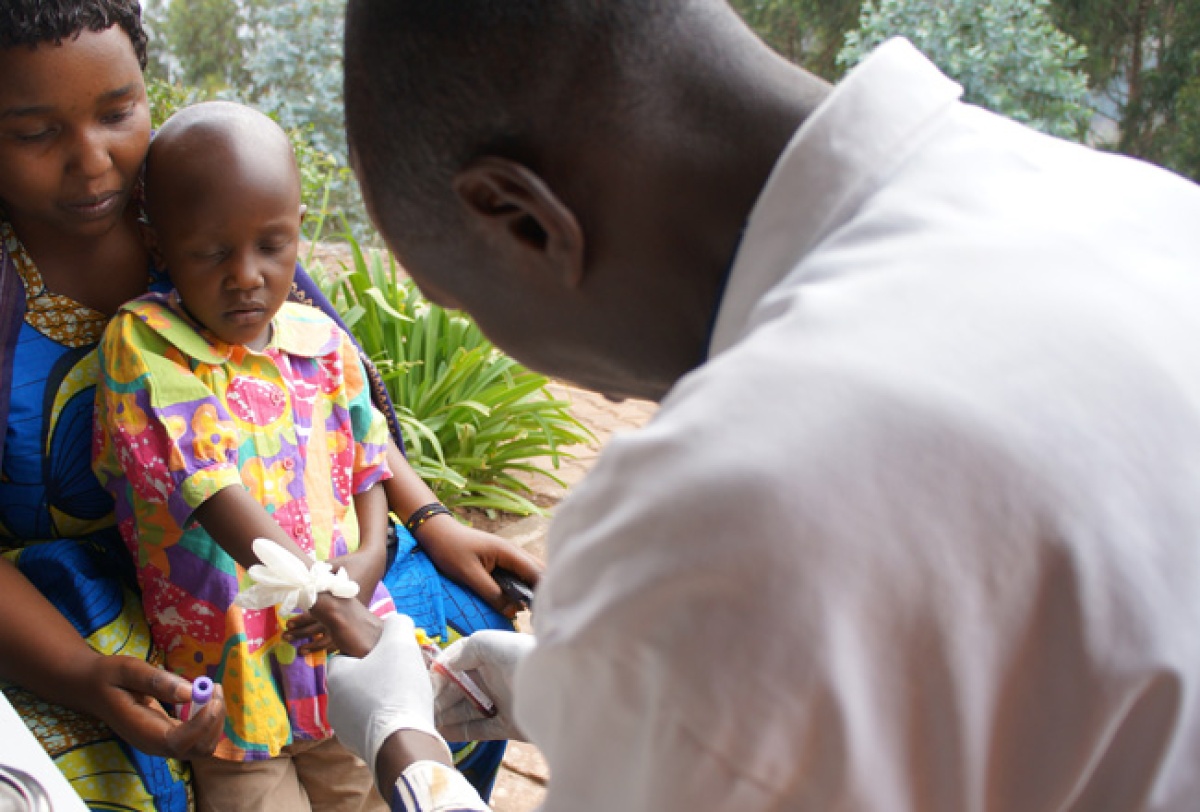'80x40x20': A New Approach to NCDs and Injuries for the World’s Poor
Posted on Jan 7, 2014

This month, Rwandan Minister of Health Dr. Agnes Binagwaho, Dr. Marie Aimee Muhimpundu, NCD program director of the Rwanda Biomedical Center, and PIH Senior Health and Policy Advisor Dr. Gene Bukhman published a commentary in The Lancet detailing a new “80x40x20” initiative. Its goal is clear: An 80 percent reduction in deaths from noncommunicable diseases (NCDs) and injuries among those 40 years old and younger living in low-income countries by the year 2020. The three authors wrote on behalf of the NCD Synergies group, which is comprised of nearly 100 authors.
First conceived by Dr. Binagwaho and announced via Twitter at the inaugural meeting of the NCD Synergies network in July 2013, 80 under 40 by 20—or “80x40x20”—follows on the heels of the World Health Assembly’s “25x25” target, announced last May. The “25x25” framework aims to cut deaths from cardiovascular disease, chronic respiratory issues, diabetes, and cancer due to unhealthy lifestyles in those older than 30 by 25 percent globally by the year 2025.
While an important and ambitious goal, The Lancet authors contend a tailored approach that more accurately reflects the epidemiology of low-income countries is needed to make lasting progress. They write, “the poorest billion people suffered about 800,000 excess deaths in 2010 from NCDs and injuries in those younger than 40.”
NCDs causing the unacceptable deaths of children and young adults in this population were generally not driven by classic lifestyle risk factors.
That the underlying causes of NCDs among the poorest billion differ from the wealthier inhabitants of Earth isn’t surprising. Folks in Copenhagen and New York City and Tokyo aren’t getting respiratory infections from cooking over an open fire in a poorly ventilated hut, as we’ve seen countless times in Haiti. Their children are not developing heart disease from strep throats or falling into fires during epileptic seizures, as we’ve seen in the countries we work. As Dr. Binagwaho and colleagues write, “NCDs causing the unacceptable deaths of children and young adults in this population were generally not driven by classic lifestyle risk factors.”
Through an integrated strategy that treats and prevents NCDs and injuries in the world’s poorest populations and supports broader economic and social development, we know that countries can substantially reduce needless deaths. Rwanda, for instance, reduced NCD and injury-related mortality by 49 percent between 2000 and 2010 among those younger than 40.
Already, 10 African ministries of health have signed on to the “80x40x20” initiative. As the authors of The Lancet piece conclude, “Perceived financial scarcity should not justify large inequalities in access to health care. We hope that the 80x40x20 target will capture the imagination of activists and evoke the same sense of solidarity and fierce resolve that has fuelled the HIV movement.”
We at PIH are pleased to stand with our partners as they push toward a more equitable world.
To read The Lancet piece in full, please click here.
Follow NCD Synergies and the authorship of this article on Twitter at #80x40x20, @agnesbinagwaho, @maimee02, @gbukhman, and @NCDSynergies
To download PIH’s guide to chronic care integration for endemic NCDs, click here.
To learn about the inaugural meeting of the NCD Synergies Network, click here.

